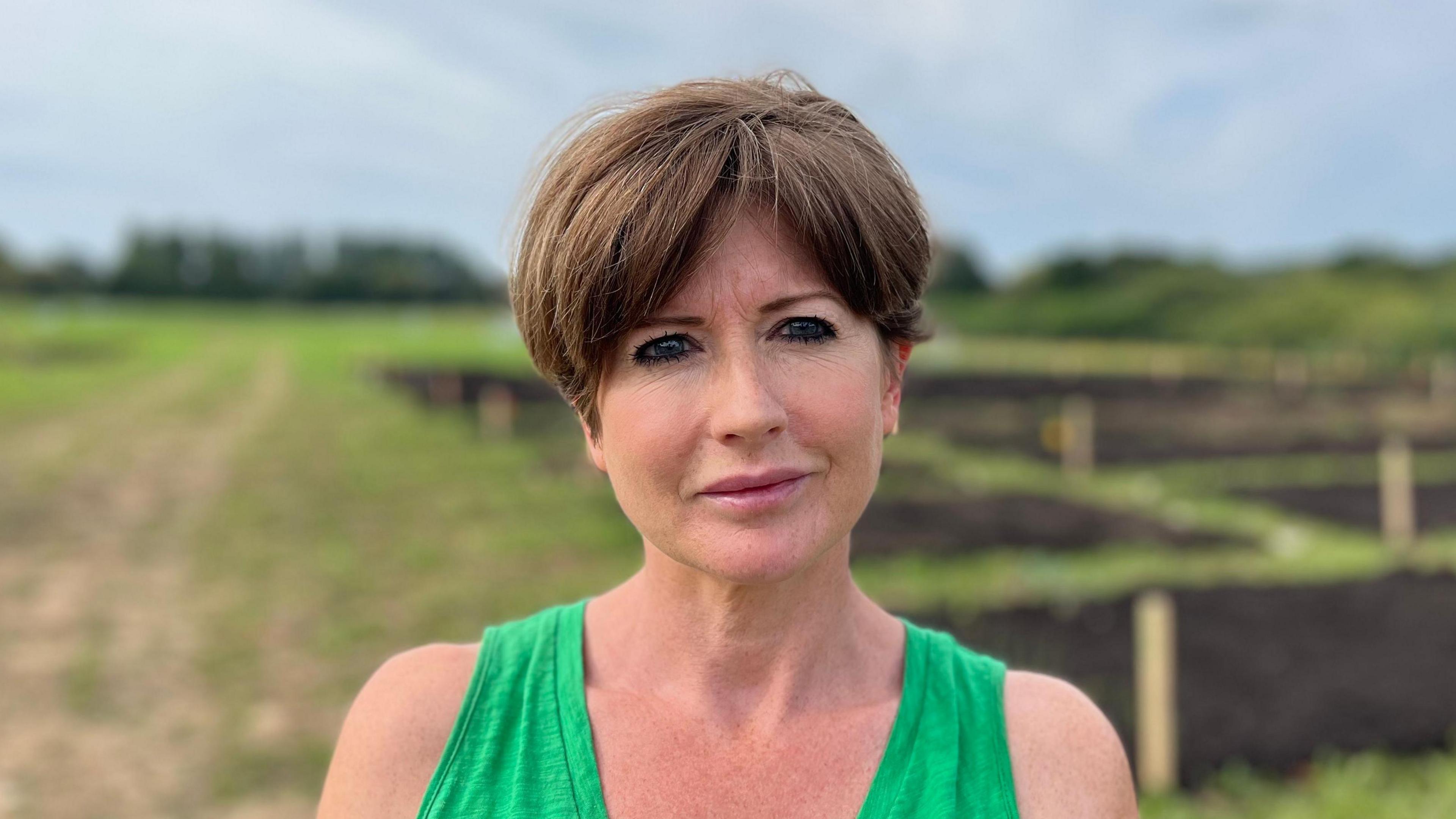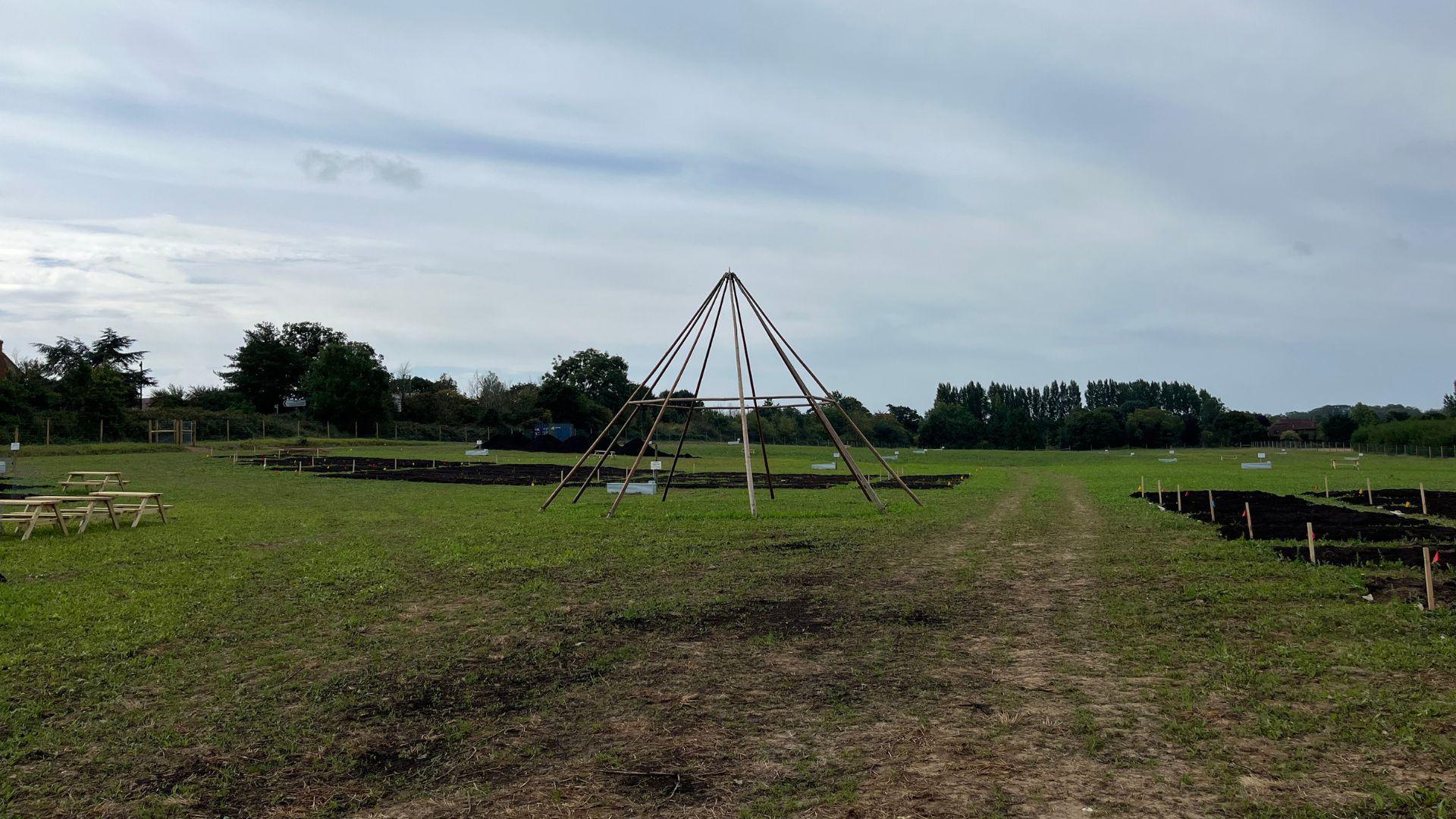Concern after 50 allotments built on national park

Anna Bingham, of the Clapham and Patching Conservation Society, has questioned the location of the site
- Published
Residents have criticised an allotment company for creating 50 new vegetable patches on protected land in West Sussex.
Roots Allotments has created the patches on 12 acres of land between the villages of Clapham and Patching, near Worthing.
The Clapham and Patching Conservation Society (CPCS) said the project had ruined years of rewilding efforts, and the entrance and exit from the A280 was a "death trap".
A spokesperson for Roots said a large part of its business model was conservation, including wildflower meadows, ponds and bugs hotels, and that it had no plan to build housing on the land.
'Beautiful meadow'
The allotment site, known as Patching Meadows, is on land within the South Downs National Park.
"It's not easy to get to, there's no public transport. It's a very odd choice for location," said Anna Bingham, of the CPCS.
"The land owner is well within his rights to lease the site to Roots, [but] why this site? There are countless others.
Ms Bingham said the "beautiful meadow" has been been rewilding for years and was "bursting with wildlife".
The CPCS said Roots ploughed the field when it took it on, but Ed Morrison and William Gay, co-founders of Roots, denied this.
"When we took on this land, the previous tenants had ploughed it because they were going to plant some crops in it," Mr Morrison said.
"We had a conversation and said we want to move onto this land, and if you plant your crops in it then they're potentially going to go to waste."

A tepee structure, a shipping container and picnic benches have also appeared at the site
The CPCS said it was not against allotments on the site, but opposed "destroying" the fields to make way for them.
Mr Morrison and Mr Gay said they chose the location after sending letters to more than 150 land owners around Worthing, Brighton and Shoreham.
"We picked the absolute closest field to an urban location - it was the only field we were able to get a deal with," the pair said.
They also said it was "absolutely incorrect" to suggest the site would be developed into housing at a later date, adding that its focus was on "trying to educate people in growing food on [the] biggest scale possible".
Roots said it had not applied to change the use of the land - it was still agricultural.
The South Downs National Park Authority said it had visited the site three times this year and found there were no planning breaches to investigate.
Follow BBC Sussex on Facebook, external, on X, external, and on Instagram, external. Send your story ideas to southeasttoday@bbc.co.uk, external or WhatsApp us on 08081 002250.
Related topics
- Published23 October 2023
